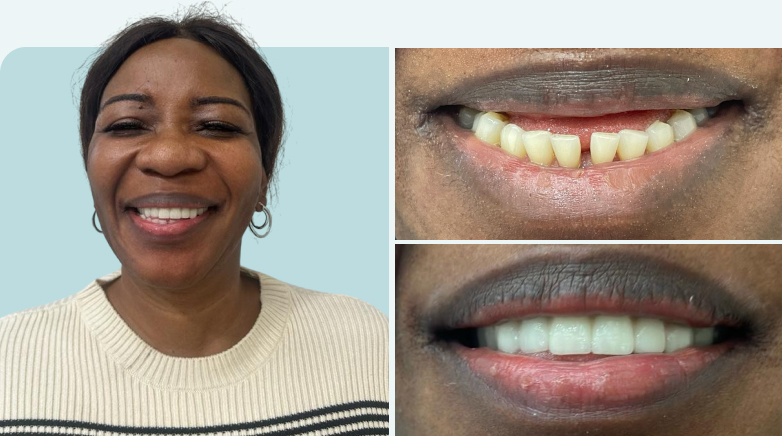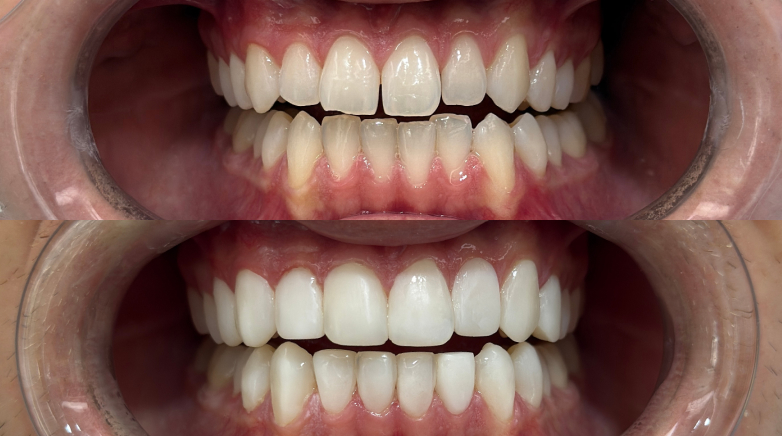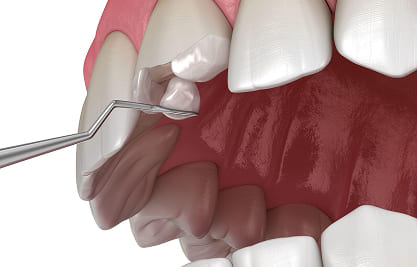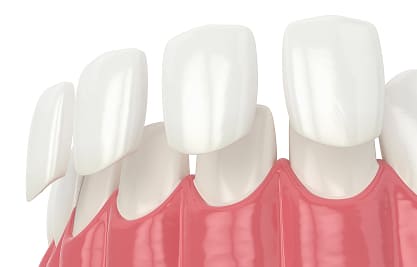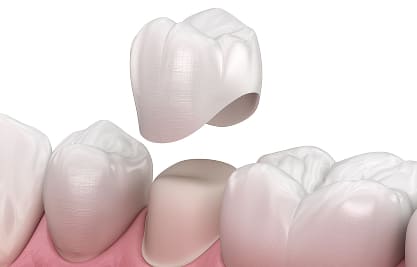What is Composite Bonding?
Composite bonding is a cosmetic dental treatment that restores the natural shape and appearance of a tooth using a tooth-coloured resin material. The procedure involves preparing the tooth surface with a light etching process, applying the composite resin in layers, and shaping it precisely to match the surrounding teeth. Once the desired form is achieved, the material is hardened with a curing light and polished to a smooth, enamel-like finish.
Unlike treatments that require altering the tooth structure, composite bonding preserves the natural tooth and does not typically require anesthesia. The resin used is selected to match the exact shade of your teeth, making the result look seamless and natural. The entire procedure is performed in one appointment, and it is often completed within 30 to 60 minutes per tooth.
Composite bonding is a conservative and efficient method for improving the appearance of teeth with minimal discomfort and immediate aesthetic results.
| Fast Facts | |
|---|---|
Procedure Duration | 30–60 Mins per tooth |
Result Duration | 4-8 Years |
Assistance | Nurse & Translator |
Certified Products | German / Swiss |
Accommodation | 4/5 Star Hotels |
Transportation | Luxury Hybrid Cars |




